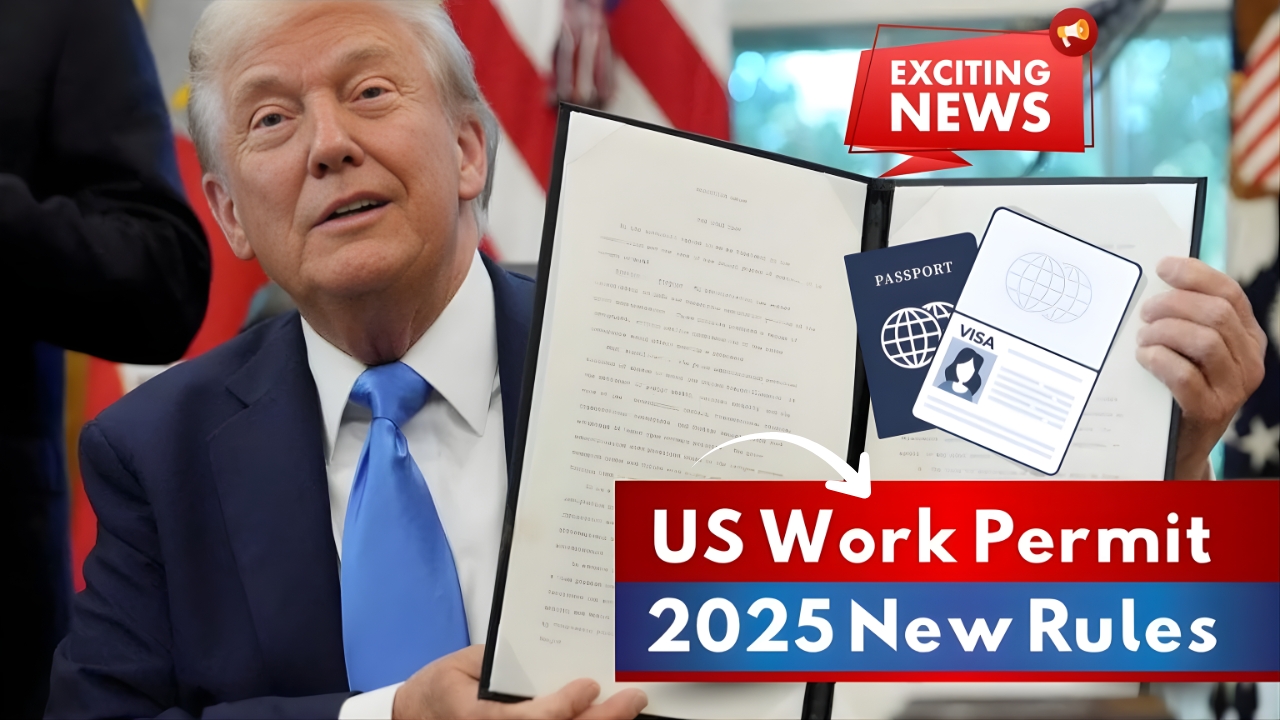The new work permit system takes effect in the year 2025 and impacts on the foreign nationals who are willing to be granted employment permission in the United States. The changes will be done to modernize the application procedures, enhance security, and focus workforce needs in essential industries. Foreigners wishing to work in the U.S. legally should understand of the new rules, the eligibility requirements, and steps to make the process easier. This paper provides an overview of the major points about the updates to the work permit in 2025 and how one may implement it by the new rules.
New Rules and Requirements of Applications.
The new requirements that are made to foreigners who seek U.S. work permits are aimed at enhancing security and efficiency. Applicants are required to send Form I-765 along with revised financial statements and evidence of legal residency in the U.S by the Department of Homeland Security. One of the major additions is a compulsory biometric verification, where digital fingerprinting is done to eliminate fraudulent applications. Moreover, there are also the premium processing options of select high-demand fields, with the decisions on the applications made in less than 30 days. These modifications indicate the attempts of the government to create a balance between national security and easier access by the real workers.
Key 2025 U.S. Work Permit Details
| Aspect | Details |
|---|---|
| Required Form | I-765 (Employment Authorization Application) |
| Biometric Requirement | Mandatory digital fingerprinting |
| Premium Processing | Available for AI, healthcare, engineering jobs |
| Processing Time | 30 days (premium) to 2-6 months (standard) |
| Validity Period | 1 to 2 years, renewable |
| Renewal Application Time | At least 180 days before expiration |
| Application Fee Range | $410 to $520 (varies by category) |
Application Process Steps
The 2025 application is based on the close examination of documents and verification of the biometrics. Applicants must:
– Submit and hand over Form I-765 to the U.S citizenship and Immigration Services (USCIS).
– Presenting documents like the passport copies, visa status, and job offer letters, where necessary.
– Pay relevant fees; certain categories can be waived on fees.
– Have an identity check appointment.
– USCIS also uses transparency and updates to track their application status online.
Early work permit renewal is a welcome idea to prevent employment inconveniences, and a standard period of 180 days ahead of the work permit expiry is considered to be the time to renew work permits.
Preference of High-Demand Occupations.
The 2025 policy has also established priority processing of foreigners working in industries that are critical to the American economy such as artificial intelligence, healthcare, cybersecurity, and engineering. This ranking assists employers to hire critical positions more quickly and still have the application process comprehensively. In such regions, programs promote applicants to use premium processing in order to cut down wait time and also overcome shortfall in workforce.
Prevention of Fraud and Improvements in Compliance.
In an effort to maintain the sanctity of the work permit system, penalties to fraudulent applications and misrepresentations are more severe. USCIS now has stiffer compliance and status verification audits. During the process of application, the applicants must have valid visas and legal presence. These will prevent abuse of the system and only qualified and deserving candidates will be given permits to boost confidence in the immigration system.
Recommendations: Negotiating the 2025 Work Permit Landscape.
The United States work permit system of 2025 has provided a more secure, transparent and efficient system of process to the foreign workers. The reforms will help to assist applicants and the national economy by including biometric checks, prioritizing in-demand jobs, and an easy-to-use tracking system. To have the best chance of succeeding according to the new rules, foreigners wishing to work in the U.S. are required to prepare comprehensive documentation, apply well in advance of renewal, and keep up with fees and eligibility changes, under these new rules.





